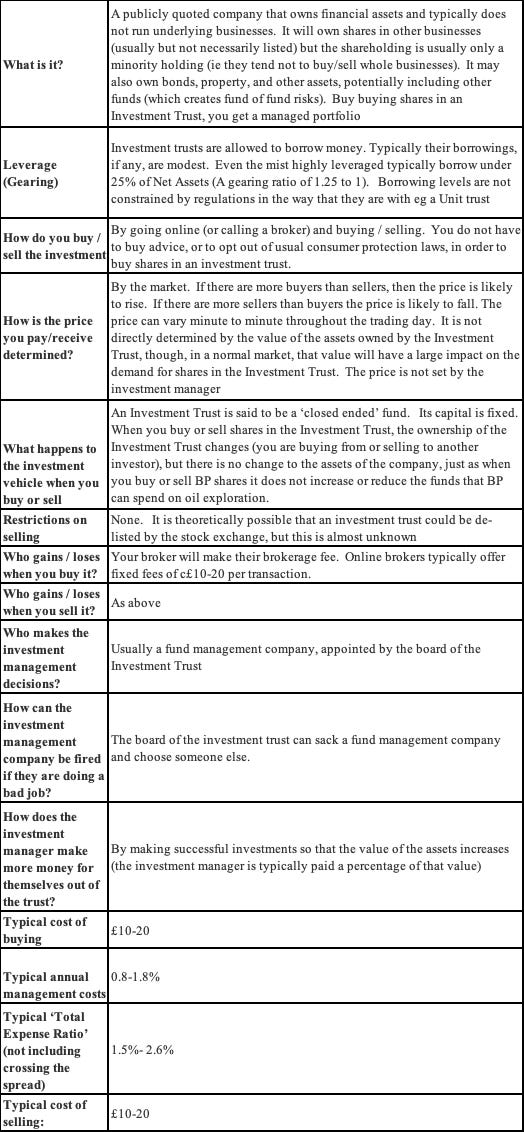003a Investment Trusts
Chapter 3a of 'There are no grown ups'
[In the UK a REIT is a Real Estate Investment Trust. As the name suggests, it invests in property, typically owning property directly, rather than buying shares in other businesses. REITs are exempt from corporation tax but required to pay out 90% of profits annually]

Investment Trusts do not trade at exactly their book value (the value of all the shares they hold), while some trade at a slight premium, most Investment Trusts have traded at a discount to net asset values most of the time. That discount (premium) varies over time, discounts of c20% have often been seen, but should the discount get much larger than that, the trust may be subject to a takeover bid: If there is a trust with £300m of assets, with a market capitalisation of £210m (ie a 30% discount), then someone can make money by buying the whole thing and liquidating its holdings. Such a buyer will be able to acquire an initial stake at the deeply discounted market price, but, will then have to launch a formal takeover bid, and will typically have to offer closer to the underlying value for the rest of the company.
Buying an investment trust at a discount can be seen as a way of offsetting some of the cost of the manager’s fees. If management costs are 1.5%, and you expect a nominal return of 8%, if you can buy the Investment trust at a discount of at least 18.75%, then the management costs can be funded by the return on the ‘free’ shares (ie those you receive beyond the purchase price you have paid). Unfortunately, this ‘free ride’ becomes more difficult when expected returns are lower.
[The ‘breakeven’ calculation is: Management Costs / Expected Return = Discount that offsets management costs. So
2% management costs / 9% expected return = 22% Discount needed to offset management costs]
The interesting RIT Capital Partners Investment Trust unfortunately has, in recent years, traded at a premium (typically in the 5-10% range) to its book (or ‘Net Asset’) value.
